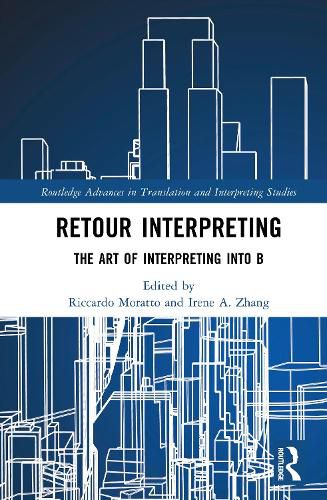Readings Newsletter
Become a Readings Member to make your shopping experience even easier.
Sign in or sign up for free!
You’re not far away from qualifying for FREE standard shipping within Australia
You’ve qualified for FREE standard shipping within Australia
The cart is loading…






This book is a vital addition to the interpreting field, focusing on retour interpreting-interpreting from one's native language (A) into a second language (B). This practice, once viewed as secondary, has become indispensable in today's multilingual and multicultural contexts.
As interpreters increasingly handle diverse language pairs and rising standards for bilingual communication, retour interpreting plays a critical role in bridging linguistic gaps. This book features contributions from leading experts who explore retour interpreting from theoretical, pedagogical, and practical perspectives. It examines the linguistic and cognitive challenges unique to interpreting into a non-native language, while also addressing the complex factors influencing effective B-language output. By highlighting the growing need for skilled retour interpreters, especially in multilingual institutions and post-colonial settings where former colonial languages often dominate, this book aligns itself with current professional demands. With eleven chapters, the book provides comprehensive insights into retour interpreting across different languages, contexts, and career stages.
It is an essential resource for interpreters, trainers, and researchers, offering practical strategies and critical perspectives. By addressing a historically underexplored area, this work fills a significant gap, reinforcing the importance of retour interpreting in today's globalized world.
$9.00 standard shipping within Australia
FREE standard shipping within Australia for orders over $100.00
Express & International shipping calculated at checkout
This book is a vital addition to the interpreting field, focusing on retour interpreting-interpreting from one's native language (A) into a second language (B). This practice, once viewed as secondary, has become indispensable in today's multilingual and multicultural contexts.
As interpreters increasingly handle diverse language pairs and rising standards for bilingual communication, retour interpreting plays a critical role in bridging linguistic gaps. This book features contributions from leading experts who explore retour interpreting from theoretical, pedagogical, and practical perspectives. It examines the linguistic and cognitive challenges unique to interpreting into a non-native language, while also addressing the complex factors influencing effective B-language output. By highlighting the growing need for skilled retour interpreters, especially in multilingual institutions and post-colonial settings where former colonial languages often dominate, this book aligns itself with current professional demands. With eleven chapters, the book provides comprehensive insights into retour interpreting across different languages, contexts, and career stages.
It is an essential resource for interpreters, trainers, and researchers, offering practical strategies and critical perspectives. By addressing a historically underexplored area, this work fills a significant gap, reinforcing the importance of retour interpreting in today's globalized world.